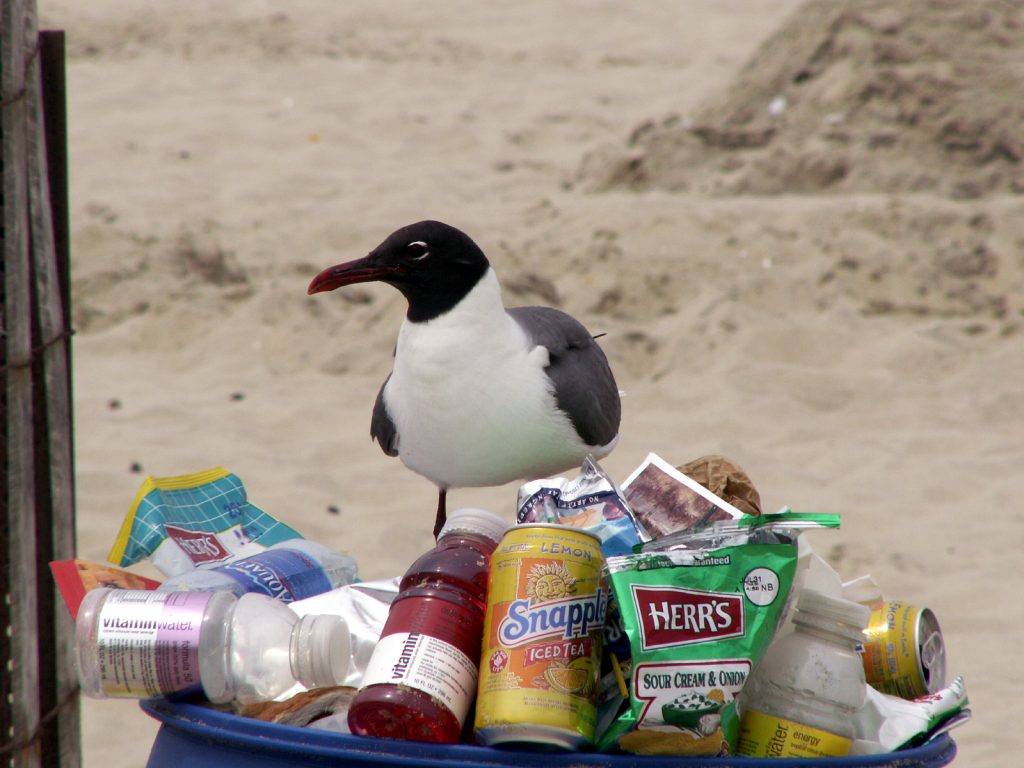New Jersey has a littering problem. Despite a statewide smoking ban on public beaches, some beachgoers continue to use the sand as an ashtray – and even more people fail to dispose of plastic bottles and their caps before leaving the beach, posing a threat to both the environment as well as animal species. A sure sign of the times, masks and other PPE items also piled up in 2020.
The findings were listed in a major, annual report compiled by Clean Ocean Action, a Sandy Hook-based group that organizes beach sweeps up and down the New Jersey coast twice per year – before and after the summer season. The group keeps pinpoint data on every item that is found and publishes it every year in an attempt to prod the state into adopting policies it believes will curtail the littering.
“COA’s Beach Sweeps data card acts as a time capsule for litter found on our beaches,” said Alison Jones, Watershed Program Coordinator for the Clean Ocean Action. “The 2021 update to the data card represents the unsettling reality that people continue to invent new ways to waste and pollute. Now, the majority of items on the data card are plastic, including many of our newly added debris items, the ‘Ocean Offenders:’ e-cigarette cartridges, caps, pens, cotton swab sticks, dental floss picks, disposable wipes, face masks, and disposable gloves.”
|
|
The full report on items found by volunteers appears embedded below. The most common items found, dubbed the “dirty dozen” by the group, include:
- Plastic pieces.
- Plastic caps/lids.
- Food/candy wrappers and bags.
- Cigarette butts.
- Straws and stirrers.
- Foam pieces.
- Plastic water/soda bottles.
- Paper pieces.
- Glass pieces.
- Cigar tips.
- Lumber pieces.
- Metal/aluminum beverage cans.
Clean Ocean Action is organizing this spring’s beach sweeps April 17 from 9:30 a.m. to 12 noon in almost every Shore community from Sandy Hook to Cape May. Information on local cleanups led by “beach captains” is available on the group’s website for those interested in volunteering.
~
Read the Full Report:

Advertisement

Police, Fire & Courts
South Toms River Man Charged in Violent Murder of Wife

Police, Fire & Courts
Toms River Man, 36, Charged With Failing to Register Under Megan’s Law










